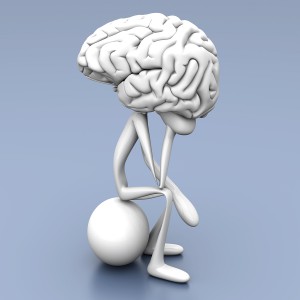Debunking 10 Brain Fitness and Brain Health Myths during Brain Awareness Week
 In honor of Brain Awareness Week, let’s debunk ten myths about brain fitness and brain health that remain surprisingly popular.
In honor of Brain Awareness Week, let’s debunk ten myths about brain fitness and brain health that remain surprisingly popular.
Top 10 brain fitness and brain health myths, debunked:
Myth 1. Genes determine the fate of our brains.
Fact: Lifelong brain plasticity means that our lifestyles and behaviors play a significant role in how our brains (and therefore our minds) physically evolve.
Myth 2. We are what we eat.
Fact: We are what we do, think, and feel, more than what we eat.
Myth 3. Medication is the main hope for cognitive health and enhancement.
Fact: Non-invasive interventions can have comparable and more durable benefits, and are also free of side effects.
Myth 4. There’s nothing we can do to beat Alzheimer’s disease and cognitive decline.
Fact: While nothing has been shown to prevent the pathology of Alzheimer ’s disease, there is abundant research showing we can delay the onset of symptoms for years –a very meaningful outcome which is often overlooked.
Myth 5. There is only one “it” in “Use it or Lose it”.
Fact: The brain is composed of a number of neural circuits supporting a variety of cognitive, emotional, and executive functions. Using or exercising just one (like “memory”) is unlikely to be of much help.
Myth 6. Brain training can help reverse your brain age 10, 20, or 30 years.
Fact: “Brain age” is a fiction. Some brain functions tend to improve, and some decline, as we get older. And there is considerable variability across individuals, which only grows as people get older.
Myth 7. Brain training doesn’t work.
Fact: Brain training, when it meets certain conditions, has been shown to improve brain functions in ways that enhance real-world outcomes.
Myth 8. Brain training is primarily about videogames.
Fact: Real, evidence-based brain training includes some forms of meditation, cognitive therapy, cognitive training, and biofeedback. Interactive media such as videogames can make those interventions more engaging and scalable, but it is important to distinguish the means from the end, as obviously not all videogames are the same.
Myth 9. Heart health is brain health.
Fact: While heart health contributes significantly to brain health, and vice versa, the heart and the brain are each crucial organs with their own set of functions and preventive and therapeutic interventions. What we need now is for brain health to advance in a decade as much as cardiovascular health has advanced over the last several decades.
Myth 10. As long as my brain is working fine, why should I even pay attention to it?
Fact: For the same reasons you should add gas to your car and change the oil regularly – so that it works better and performs longer.
–> To learn more, order and read the new book “The SharpBrains Guide to Brain Fitness: How to Optimize Brain Health and Performance at Any Age” (April 2013; 284 pages). This user-friendly, how-to guide cuts through the clutter of media hype about the latest “magic pill” for better brain health, offering proven, practical tips and techniques that anyone can use to enhance and maintain brain function throughout life and even ward off cognitive decline.



Just a note on Myth 2. We are what we eat.
When this statement is used, it usually refers to the affect on body composition in regard to the diet in proportions of fats, proteins and carbohydrates.